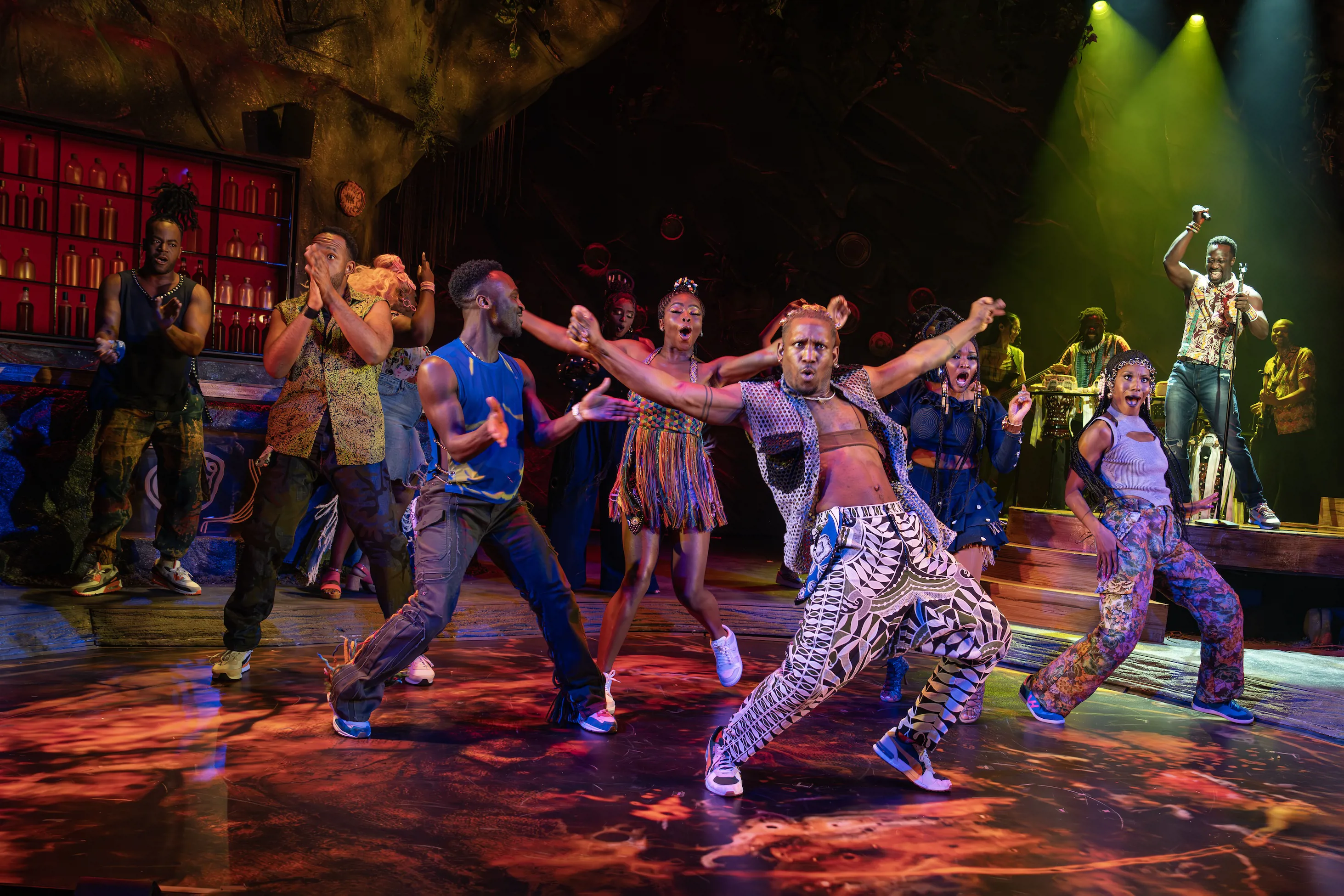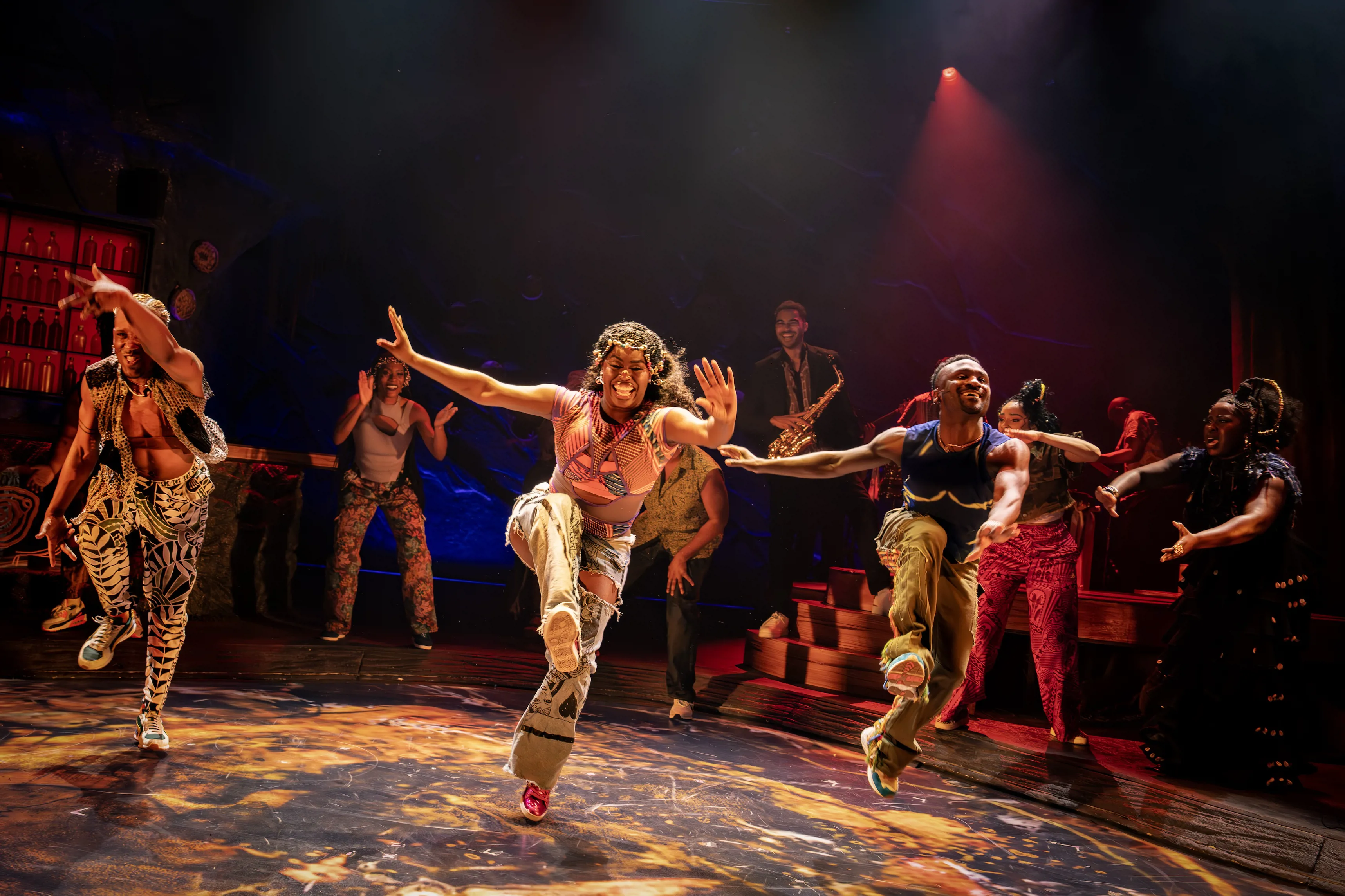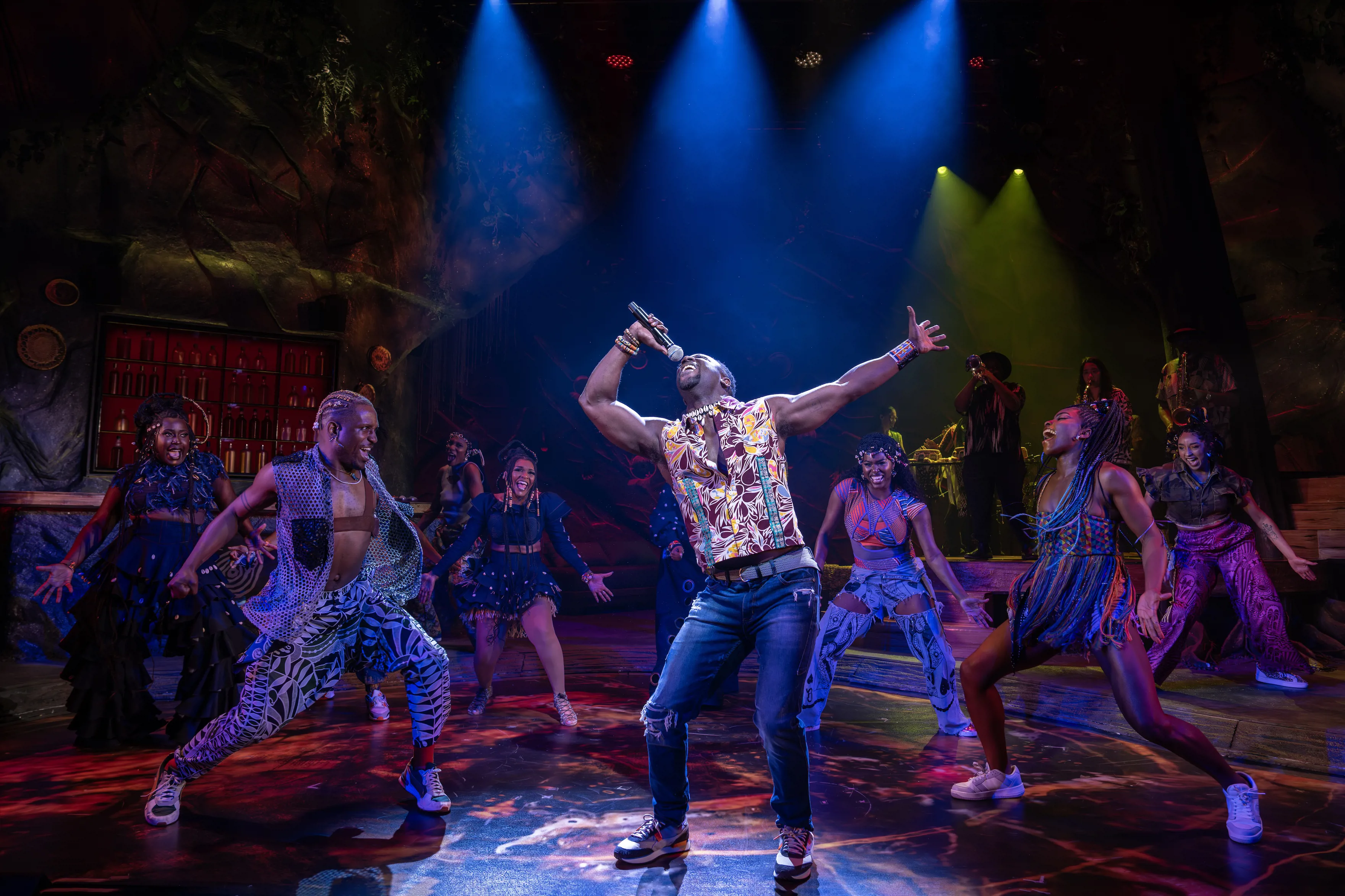STEP IN WITH JOY: A Conversation with GODDESS Choreographer Darrell Grand Moultrie

By Dr. Shanaé Burch (she/her)
GODDESS entrances us with a story of protean love and leading a Spirit-led, multi-dimensional life. Casting spells with her ministry of music, our Goddess Nadira (Amber Iman) arrives to Moto Moto, an Afro-Jazz club in Mombasa, Kenya, with a significant secret she is unable to keep under wraps for too long. Also enchanting clubgoers with his own gifts, Omari (Austin Scott) returns to Moto Moto in secrecy with a similar plan to stash one part of his creative inheritance away. But then: Music! The two of them meet and arrive at a threshold. Are they ready to love the fullest version of themselves—together or apart? Does what they believe about God(s) and Goddess(es) have to be a carbon copy of their parentals? If war begets music, what future might music beget? Moving forward the answers to these questions and story arc are the forces of dance between what is often distinguished as the sacred and secular world. Joining me in conversation is GODDESS choreographer Darrell Grand Moultrie, who in deep, decades-long partnership with his collaborators develops dance as an world-blending language of the stage.

Blood Memory Helps Us Dance Between Continents
Having choreographed around the world, we discuss the specific inspiration behind the movement as stemming from his own African dance training as a youth in NYC. Moultrie explains: "It feels like a blood memory. You know what we were doing up in Harlem? It has carried over to the continent and what they're doing over there has carried over. The cross-pollination of it all excites me."
Researching Kenyan traditions, he recognized familiar elements from his childhood that appeared slightly different—an intercontinental revelation that thrilled him.
"As an African American, it really excites you because we don't have much connection to the continent Africa. But through music and dance, we do," he continues. "It may look a little different but a lot of it you can understand immediately. And you know, people say you don't know why, you do know why! Because it's in your DNA. You know it's in yourself."
Step In With Joy: Bring Out The Aura In You
“You know it’s in yourself.” This is a memorable message from the interview that echoes as a major theme of the show. As audience members we witness the scale to which Nadira, Omari, and other members of the community trust their own light within—first in stages before full throttle. This cultivated presence isn't automatic—it's intentional: "We had a day where we talked about putting a ring around themselves. You can't wait for the world to do it for you. When you step in a room, you step in with joy. That's an aura. Because the world's gonna question it, right? So we got to find ways to, you know, how does a huge pop star who gets criticized every day, all day, keep her aura and her strength?"
Moultrie is more than a reliable source. New Yorkers are anticipating Beyoncé’s arrival to the city with the Cowboy Carter tour, and so Darrell’s question is doubly-timely—especially as he was one of the featured choreographers of the Mrs. Carter Show World Tour. "Coaching [Beyoncé] is the same as coaching Amber Iman. That otherworldly thing! You teach them how to put an aura around themselves." And that Iman does! Tucked in the transition between Nadira’s playing small and pursuit towards taking up space is a spirited message for every audience member. Even with all of the given circumstances, it’s time to step into joy, and most specifically Black joy! The Black joy on display is not magic, but an expression of faith in another world and astral dimensions!

When a “Myth” Manifests Real Faith
Derived from the myth of Marimba and African folklore, it is only natural that the show may prompt reflections on one’s own belief systems. Given the spirited movement vocabulary Moultrie equips the cast with to bend between worlds, I was curious how Moultrie’s own beliefs may have shaped what became of dance in the show. I learned that Moultrie’s love of Gospel music is informed by growing up listening to music with his mother who has since transitioned to ancestor. I also learned of the ways he has felt the presence of God and the ways his yoga, gyrotonics, and meditation make up his contemplative and spiritual practices. As a ripple effect, audience members may catch more than a glimpse of the experience — coming face to face with more than one Goddess. From the initial warm-up that precedes teaching choreography to his Opening Night rituals, Moultrie’s spirit is “laced all in it.”
Moultrie’s multi-genre description reminds me of the late scholar Dr. Barbara Holmes’ poem titled “Joy Unspeakable” and the stanza where she writes:
For the tap dancing, boogie woogie,
rap/rock/blues griots
who also hear God,
joy unspeakable is
that space/time/joy continuum thing
that dares us to play and pray
in the interstices of life,
it is the belief that the phrase
“the art of living”
means exactly what it says.
Community Euphoria: Why We Live
Prompted by the unique energy I witnessed in rehearsal, I shared with Darrell my vision of "community euphoria"—the shared feeling of wellbeing—and asked what it meant to him through this creative process.
"Community euphoria is literally the reason why we should be living," he responds with conviction. "Community euphoria could be joy... But it could also be something so stunning that it makes you cry. It could also be something so beautiful you think about loved ones who have passed on."
He points to moments in GODDESS that embody this experience: the exhilarating opening that makes audiences exclaim "What the heck is happening to us? This is pure joy," and Amber's ballad "Learn to Love"—"She's alone on stage thinking about learning to love. To me, that's community euphoria."
His definition crystallizes the power of live performance: "When you get a group of people on the same wavelength through art, that's why we live."
Given the other otherworldly we live in now with hostility towards art, health, and moral courage, the show sealed for me an affirmation for the divine timing of GODDESS’s New York Premiere. In defiance, it is a marvel to witness—this collective living out on stage the “Joy Unspeakable.”
Joy unspeakable is
a symphony of incongruities
of faces aglow and hearts
on fire
and the wonder of surviving together.

Dr. Shanaé Burch is a Black feminist researcher and teaches arts in health at Rutgers University. She serves as Interim Executive Director of Community Conversations: Sister2Sister, co-Deacon at Double Love Experience Church, and co-editor of Poetry for the Public’s Health. She is a 2025 Aspen Ideas Health Fellow and member of the 2024-2025 cohort of the BIPOC Critics Lab at The Public.